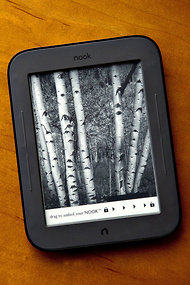Ending months of speculation, the Tribune Company announced on Wednesday that it would spin off its newspapers, including The Los Angeles Times and The Chicago Tribune, into a separate division called Tribune Publishing Company. Its broadcasting properties would remain together with other assets in the Tribune Company.
The move mirrors one by News Corporation, which late last month formally separated its newspapers into a new company. The common motivation is an effort to separate high-value, high-return entertainment and television assets from newspapers, which face a difficult operating environment that has dragged down earnings.
The Tribune Company, which emerged from bankruptcy at the end of 2012, signaled last week that it saw a bright future in broadcasting when it purchased 19 television stations in 16 markets, bringing its total number of television stations to 42 and giving the company a large footprint in the local TV business.
Some initial efforts to sell the newspapers were hampered by significant tax implications – given that the newspapers are mature businesses, the taxes on a sale of all the prosperities could reach well over $100 million. The company has interests in large digital assets, CareerBuilder.com and Classified Ventures, that include publishing arrangements with the newspapers that would have been invalidated by a sale. The broadcast entity, which will continue to be called the Tribune Company, will retain those assets, but the agreements will remain in place.
The spinoff does not preclude a sale of any or all of the newspapers, the company said, and executives are hoping that the announcement stirs interest in some of the properties and perhaps a greater willingness to shoulder some of the tax implications.
In a news release early Wednesday, Peter Liguori, chief executive of the company, said that each division would be able to operate independently.
“The two companies resulting from this transaction would each have revenues in excess of $1 billion and significant operating cash flow,” Mr. Liguori said. “We expect that this transaction will serve our shareholders and employees well, and put these businesses in a strong position for continued success.”
The split, like News Corporation’s, is expected to take months and is subject to some regulatory approvals. Each of the new entities will have its own board of directors and senior management team.
The company had retained Evercore Partners with an eye toward selling the newspapers, but the financial deal books that generally precede a sale had yet to go out, leading to speculation that an outright sale was complicated business proposition in the near term.
In addition, Mr. Liguori, an executive with a long history in broadcasting, has shown an increasing interest in the operational aspects of newspapers, indicating the company would likely not be selling them off wholesale. The split will give Tribune Company time to shop the newspapers over a longer time frame.
What had been envisioned as a straight-up auction of storied but troubled newspapers has been complicated by a business environment that is depressing values for newspaper properties, most remarkably large regional dailies that have been hit especially hard by changes in advertiser and consumer behavior. In October, The Tampa Tribune sold for a scant $9.5 million dollars; the Philadelphia newspapers sold for $55 million in April 2012 after fetching $515 million in 2006.
Still, several people or groups of people have expressed interests in the Tribune Company’s newspapers, which have been valued at roughly $623 million and also include The Baltimore Sun, The Orlando Sentinel and The Hartford Courant. Charles and David Koch, the conservative billionaires, are among the most prominent potential bidders. Aaron Kushner, the owner of The Orange County Register, said last December that he was looking at the properties, and Douglas Manchester, owner of The San Diego Union-Tribune, has expressed interest in The Morning Call of Allentown, Pa., one of the smaller newspapers in the chain.
According to Ken Doctor, a newspaper analyst, publishing revenue at the company has dropped 51 percent between 2005 and 2011, mirroring the halving of revenue in the rest of the industry. The properties have suffered deep editorial cuts and a loss of luster after a debt-laden purchase of the newspapers by Sam Zell in 2007.

Article source: http://www.nytimes.com/2013/07/11/business/media/tribune-co-to-split-in-two.html?partner=rss&emc=rss
